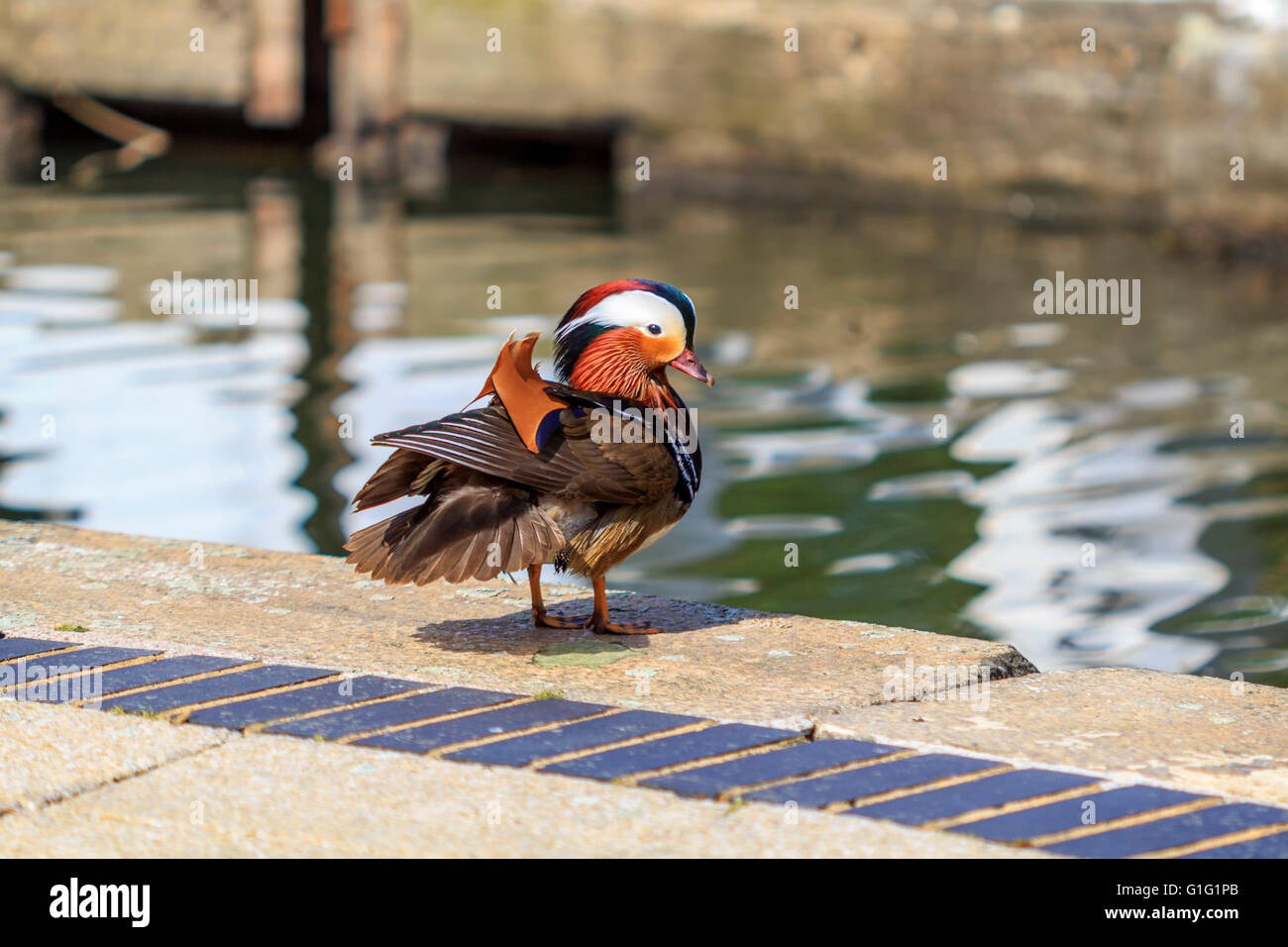Mandarin duck (Aix galericulata) drake, Having a rest by the canal at Brentford Lock London UK.

Image details
Contributor:
Peter Burne / Alamy Stock PhotoImage ID:
G1G1PBFile size:
51.3 MB (1.5 MB Compressed download)Releases:
Model - no | Property - noDo I need a release?Dimensions:
5184 x 3456 px | 43.9 x 29.3 cm | 17.3 x 11.5 inches | 300dpiDate taken:
8 May 2016Location:
Brentford London UKMore information:
Mandarin duck (Aix galericulata) drake basking in the sunshine at Brentford canal by the Canal Lock. The mandarin duck is a perching duck species found in East Asia. It is medium-sized, at 41–49 cm long with a 65–75 cm wingspan. It is closely related to the North American wood duck, the only other member of the genus Aix. The mandarin, widely regarded as the world's most beautiful duck, is a native of China and Japan. The drake mandarin's stunning plumage has long made it an artist's favourite, and it is widely depicted in oriental art. The first mandarins were imported to Britain in the mid-18th century, but it wasn't until the 1930s that escapes from wildfowl collections started breeding here. The first birds to escape did so from Alfred Ezra's collection at Foxwarren Park, near Cobham in Surrey, and this area remains one of the strongholds of mandarins in England. Mandarins favour small wooded ponds and avoid lakes or large bodies of open water. They are extremely manoeuvrable fliers, able to fly through trees with remarkable agility. They frequently perch in trees, while the female invariably chooses a hole or cavity in a tree trunk in which to lay her eggs. Lack of natural nest sites and competition from jackdaws and squirrels limits population expansion, but they will readily adopt suitable nest boxes. After hatching, the ducklings jump to the ground: their fluffy down and lightweight ensures that injuries are unusual. Once the mother has gathered her brood, she leads them straight to water.